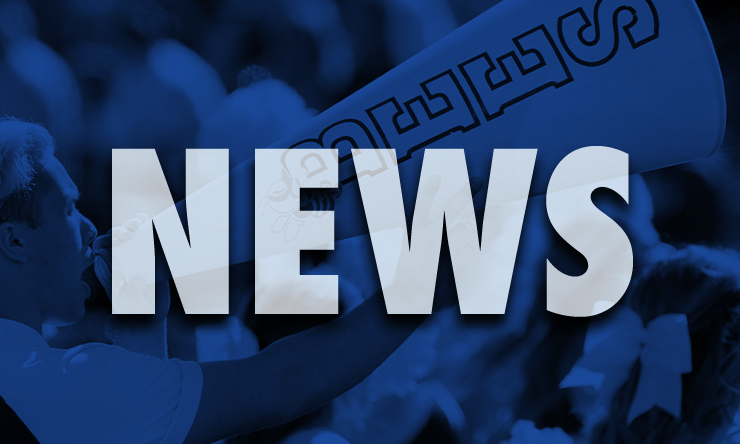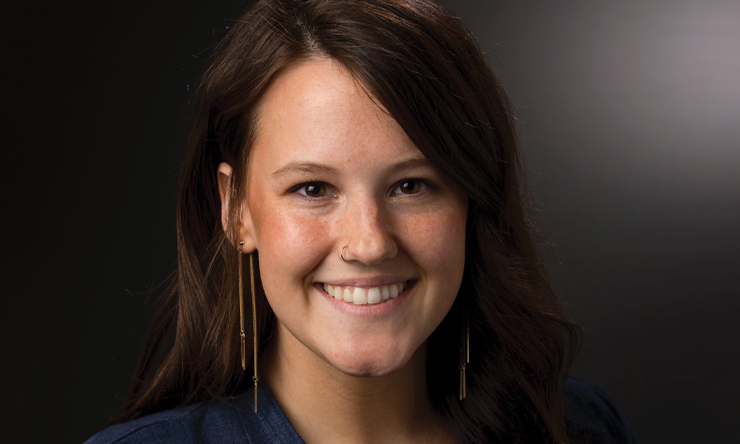The producer of an Oscar-nominated hour of the acclaimed PBS documentary series "Eyes on the Prize" called the civil rights movement relived in that series "nothing short of a social revolution, period."
The election and re-election of our first black president makes this early portion of the 21st century another significant time in the history of race relations in the United States, said Callie Crossley, the award-winning journalist who will deliver the 2013 Woodrow Wilson Lecture on March 6 at the Rogalski Center.
But recent progress cannot compare to the epic change that occurred between 1954 and 1965, she said.
"That period was incredible and amazing, a very short time period for a lot of extreme change to happen," said Crossley, whose talk will continue St. Ambrose's yearlong "Race Matters" project. "And extreme change did happen.''
What's more, she said, the civil rights movement paved a path for the anti-war and women's movements that followed. "It freed African-Americans, certainly," she said, "but it freed everybody else as well."
Currently the host of "Boston Public Radio" and program manager for Harvard University's Nieman Foundation, Crossley has been a producer for ABC's "20/20" and her work has been nominated for an Emmy, a Peabody Award and an Edward R. Murrow Award.
She recently followed Hillary Rodham Clinton, Madeleine Albright, Nora Ephron, Cokie Roberts and Diane Sawyer, among others, as a Wellesley College Alumnae Achievement Award winner.
Her March lecture will be titled "I Don't Mind Talking About It: Breaking the Silence About Race and Racism."
Not all talk is equal, she said.
"There is a lot of talking about it," she said "But there is very little interaction that takes you to a different place, to where you really get an understanding of the other person's point of view."
News
Q&A with Callie Crossley
Callie Crossley is the producer of an Oscar-nominated hour of the acclaimed PBS documentary series "Eyes on the Prize." She also is a respected journalist and commentator on the subject of race in America.
Crossley will deliver the 2013 Woodrow Wilson Lecture on Wednesday, March 6 at 7 p.m. in the Rogalski Center Ballroom. Her lecture, titled "I Don't Mind Talking About It: Breaking the Silence About Race and Racism," is part of the year-long St. Ambrose University project, "Race Matters."
Currently the host of her own show on Boston public radio and program director for Harvard University's Nieman Foundation, Crossley has been a producer for ABC's "20/20" and her work has been nominated for an Emmy, a Peabody Award and an Edward R. Murrow Award.
Ambrosian: How would you assess where we are in terms of race relations at this particular point in time?
Callie Crossley: "Better than we used to be, but a long way to go."
Ambrosian: Particularly taking into account the results and the conduct of the past year's election, how differently do you look at things today than you might have in October?
Callie Crossley: "Actually, not much differently. In fact, I have been surprised and deeply saddened by the level of overt, publicly stated racist comments and acts. I never believed in a post-racial anything. That's a myth. But I certainly thought that in our nation with the kind of racial history we have - where the tension is ever thus, and it's ongoing and unretractable, all those things - that the election of a black man to president would mean something positive in the whole context of race relations.
"So, imagine my surprise to see that it has pushed forward, it seems, a lot of people for whom it is not about disagreeing with President Obama's policies. It's really about just disagreeing with him because he is a person of color and expressing it in the most vile of terms. The most vile. I have been quite shocked by that."
Ambrosian: Are you bothered not just by the volume of the objections but by the number of people saying those things?
Callie Crossley: "I'm bothered by the number, the volume. I don't think it's a squeaky wheel thing. And I say that because there are a variety of people saying it. Sometimes you can look at this and you say 'Oh, that's a person who is a part of an anti-group, a known racist group this just gives an opportunity to state their philosophy again.' I'm not looking at those people. I am looking at people who were the person sitting next to you on the bus the day before and working with you side-by-side, who, to some degree, feel no compunction at all about saying really vile stuff, and publishing it and sending it around the web. And I'm not talking anonymously, either. Full-faced, here's what I believe, here's what I think. And that's very distressing to me. I can't assess that. I don't know what that means."
Ambrosian: Your talk is titled "Breaking the Silence about Race and Racism." Do you think those topics are under-discussed and under-reported?
Callie Crossley: "It's definitely under-reported and that is basically because, unfortunately here in 2012, most people who make decisions about (reporting) these things don't look like me, and/or do not see it is a part of many conversations. In fact, it is not cool. The first thing somebody says is, 'I don't know why so-and-so had to bring race into it.' Well, they didn't really bring it into it. There it was. And it's something to be considered.
"Maybe you don't agree with it but somebody sees it in that way. And I think when we talk about reporting it, you have people who don't see it and that is because they haven't lived the experience. So they therefore don't think it exists. Racism for a lot of people who report race in this country, or when they do, has to be something as extreme as a James Byrd being dragged behind the car of some crazy teenagers. There's nowhere else to go in that scenario. ... It had to be ascribed to what it was, which is racism. When that incident happened several years ago, I had conversations with a number of us who cover such stuff and they said, 'You know, it was such a relief to be able to talk with colleagues and have them not find some other excuse for it.'
"And we also want to look for other excuses because it is painful to be reminded that it hasn't gone away when we think ourselves better than that. America thinks of herself as better than that. And to a large degree, we are better than that. That's why it's sad when we see these things happening.
"That's a long answer to say, it's definitely under-reported. And often because people don't see it or they don't know how to approach it.
"The other question was do we talk about it enough? No we don't talk about it enough. I am going to make the distinction in my event at St. Ambrose that you can yammer on about it, sort of at cross purposes, or you can sit down and have the kind of intense conversation that takes you to a different place.
"So I would say to you, there is a lot of talking about it, but there is very little interaction that takes you to a different place, to where you really get to understanding the other person's point of view. And really having the discussion. And that's because it is an uncomfortable thing to do. Why wouldn't we much rather say, 'Gee, we're at a different place. Don't bring all that stuff up. You're my neighbor. Or you're my co-worker. And we get along. So let's not talk about it.' But, in fact, it informs those of us who are persons of color every day. Even if there are persons of color who deny it informs them, it just certainly does. It just does."
Ambrosian: Would you like to see the president lead a conversation on race?
Callie Crossley: "It's really not for him to lead that discussion. It is for the rest of us to engage in the conversation. If he wants to talk about it, that's fine. But it's clear now that is not where he is going. For many reasons, some of which is he would be attacked on all fronts for 'Everything you say is looking at it from a racial context.'
"Look what happened when he said, 'If I had a son he would look like Trayvon Martin.' Well, he would look like Trayvon Martin. ... I think that was very uncomfortable for a lot of people. They want to identify the president in some kind of universal, amorphous way and not as someone who is a member of a particular constituency.
"It's past time for all of us who think about these issues and are willing to talk about these issues to remind people that it is important to engage in deep conversation about this. But I don't necessarily think we have to wait for a leader, or even this leader, to do so. What's the saying? We're the people we have been waiting for. What are we doing?
Ambrosian: Considering your involvement with "Eyes on the Prize" and particularly studying the 11 years from 1954 to 1965, can you compare that period with the past decade?
Callie Crossley: "I can't compare those two periods at all because what happened in those 11 years (in the 20th Century) was nothing short of a social revolution, period. And a lot of times people don't look at it that way. They think of it as just some other movement that happened in this country. But, in fact, the way that many people in this country lived and the way this country was going to react to those people fundamentally changed from the ground up. With laws put in place and then customs and traditions overturned. And then in the articulated public expression of people who changed their tune completely, who realized that, as we say in 'Eyes on the Prize,' America had to be America for all of it's people or there was really no America.
"So that period was incredible and amazing and a very short time period for a lot of extreme change to happen. And it did happen. And in what I think is a positive way. And that movement is not just that movement in and of itself. The rest of the social movements that people have come to know and love, the women's movement, the anti-war movement, are all based on the civil rights movement. So it is fair to say that without the fundamental social revolution that took place in this country based on the civil rights movement and its strategies and its reaching out to your everyday American to say 'This means you, too; even if you do have the ability to vote and can sit where you want to sit and eat where you want to eat, and all of that,' we would be in an entirely different country. So imagine all of the rest of those movements that came after not being there, or certainly being there in a different way. But the civil rights movement made that possible. As I like to say, it freed African-Americans certainly, but it freed everybody else as well."
Ambrosian: Have these past 11 years been as momentous in their own way?
Callie Crossley: "I think obviously the election of the first black president was a momentous thing. But I even say looking at that moment, the reason all those people were crying in the cold at the 2008 inauguration of President Barack Obama was because so many of them recognized that historically this moment was linked to those folks who first marched across that bridge at Selma. And who sat in, sat down, were lynched, were killed, so that people could exercise what was given to them at birth - they're rights as citizens. So to see a black man elected by Americans? For many of whom did not have a right to vote 40 years ago that's pretty momentous. I don't think you deny that. But the rest of the time, I guess I'm just not seeing major movements, looking at it from a social justice movement. I don't see that except for that high-water mark of the election and re-election of Barack Obama."
Share This Story



